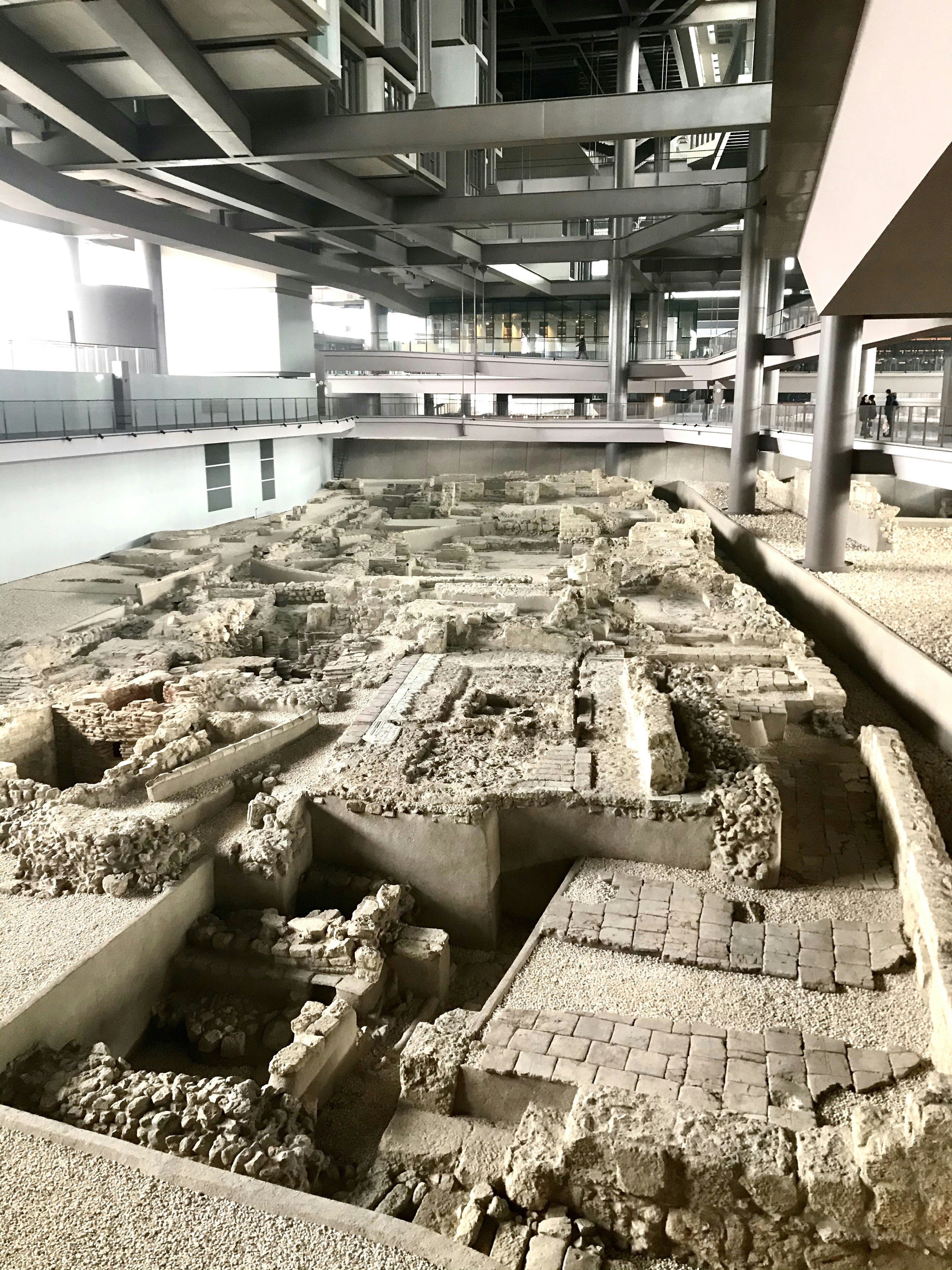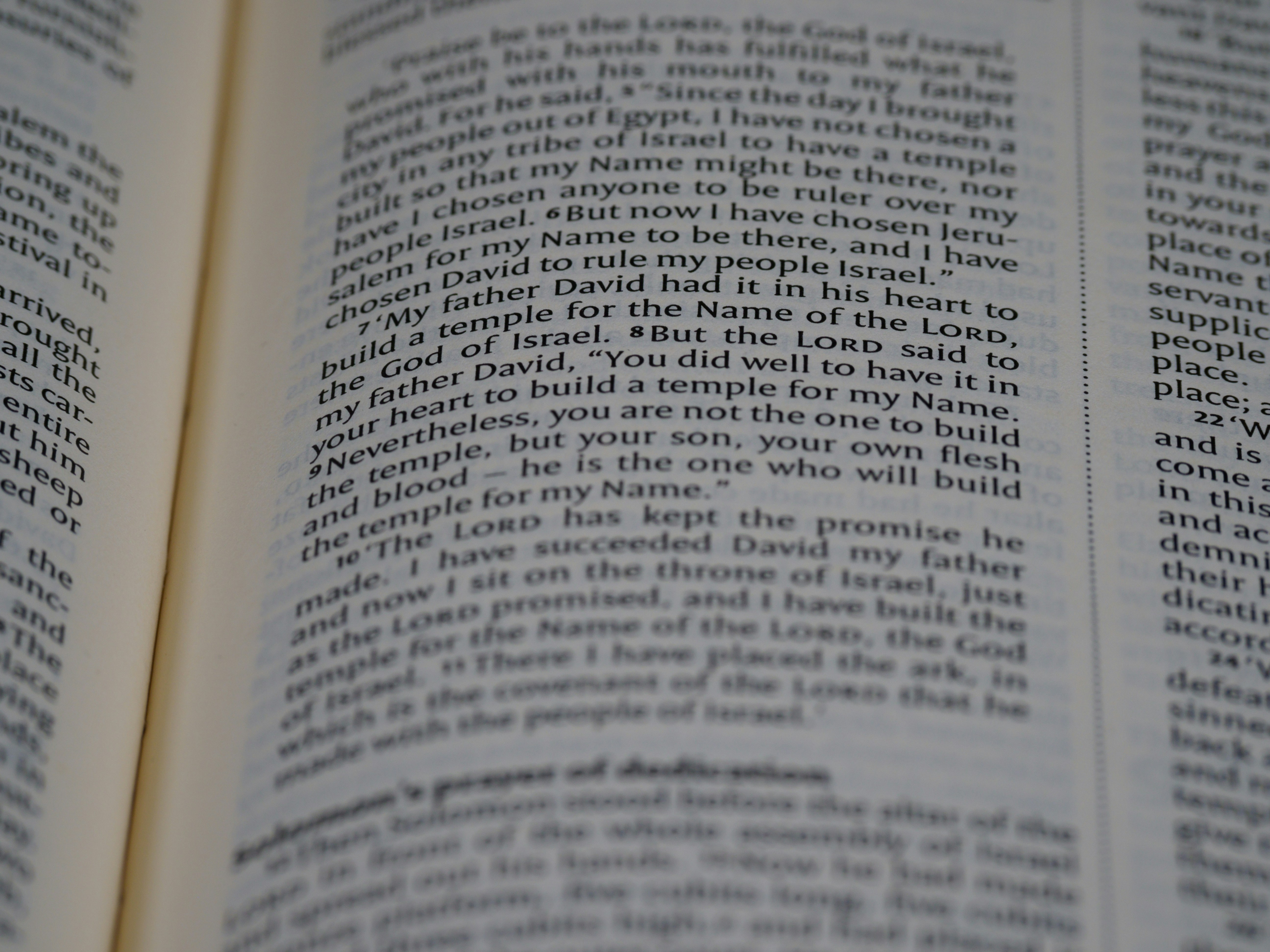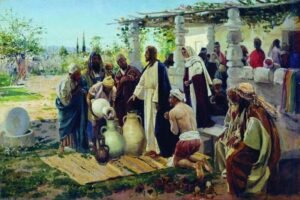Unveiling the Forgotten Gospel: A Revolutionary Perspective on Christianity

Introduction to the Forgotten Gospel
The recent rediscovery of the so-called “forgotten gospel” has provoked significant interest within both scholarly circles and the broader Christian community. This ancient text, still shrouded in mystery and excitement, dates back approximately 80 years since its discovery, revealing insights that may have been lost to history. Its sudden emergence provides a unique opportunity to delve into the origins and teachings of early Christianity, refreshing the discourse surrounding faith and belief systems.
This text, believed to be written in a context distinct from the canonical gospels, challenges traditional narratives while complementing established doctrines. The forgotten gospel’s perspective enriches the understanding of Christian beliefs by presenting alternative views that resonate with the core themes of love, forgiveness, and redemption. In an era where many individuals seek deeper spiritual engagement, this text addresses the complex relationship between historical understanding and contemporary faith.
Historical Context of the Gospel
The composition of the gospel in question is believed to have taken place between 1,600 to 2,000 years ago, a period marked by significant historical events that shaped the religious landscape of the time. This era was characterized by the emergence of various sects within Judaism, the rise of early Christianity, and the impact of Roman political dominance in the region. Understanding this historical context is crucial to grasping the unique perspective presented in this forgotten gospel.
During the time of its writing, the Jewish society was experiencing profound internal strife and external pressures, notably from the Roman Empire. The Second Temple in Jerusalem was pivotal for Jewish worship and identity, but it also became a focal point for conflict. Various religious factions, including the Pharisees, Sadducees, and Essenes, vied for influence, each interpreting the Jewish faith through distinct lenses. The emergence of early Christians, who viewed Jesus as the awaited Messiah, further complicated the existing religious framework. This dynamic set the stage for diverse theological reflections, which likely influenced the writings within this gospel.
Culturally, the intermingling of Hellenistic thought with Jewish traditions led to the proliferation of new religious ideas. This syncretism created fertile ground for theological innovations, evident in the themes presented in this gospel. Politically, the oppressive rule of Rome instigated various reactions among the Jewish populace, some of which found expression in the spiritual narratives and teachings of the time. However, due to various factors, including the consolidation of the biblical canon, this particular gospel did not find its way into mainstream Christianity.
Examining the historical conditions surrounding the composition of this gospel illuminates not only its unique perspectives but also the broader intricacies of faith during a transformative epoch in human history.

Key Themes and Messages of the Gospel
The forgotten gospel introduces several profound themes and messages that stand in contrast to the narratives found in orthodox Christian texts. Central to this gospel is a reimagined depiction of Jesus, portraying him not merely as a historical figure, but as a transformative teacher who advocates for a revolutionary approach to spirituality and morality. This perspective emphasizes the inclusivity of all individuals, suggesting that divine grace extends to every person, irrespective of societal norms or established religious boundaries.
One of the core themes of this forgotten gospel is the emphasis on personal spirituality over institutionalized religion. It calls for an intimate connection between the individual and the divine, encouraging followers to seek their spiritual truth rather than conforming to rigid dogmas. Unlike traditional texts that often emphasize salvation through adherence to specific laws, this gospel posits that true redemption arises from understanding one’s inner self and embracing a universal love that transcends limitations and prejudices.
Morality is another critical element revisited within this gospel. Rather than adhering to a set of moral codes dictated by authority, it invites believers to cultivate compassion and empathy as the foundation of their ethical frameworks. This revolutionary view fosters a sense of shared humanity, urging individuals to engage with the world through acts of kindness, thus reflecting the divine nature inherent within all. Such an approach challenges existing paradigms and encourages a continuous exploration of morality rooted in experience, personal growth, and harmonious coexistence.
In summary, the themes presented in the forgotten gospel provide a progressive lens through which one can view the teachings of Jesus. By focusing on personal spiritual growth, redefining morality, and emphasizing universal love, these messages resonate with contemporary values while inviting a deeper exploration of faith and its role in modern life.
Contrasts with the Canonical Gospels
The exploration of the forgotten gospel offers a unique lens through which the life and teachings of Jesus Christ can be examined, contrasting significantly with the accounts found in the canonical gospels of Matthew, Mark, Luke, and John. One noticeable difference lies in the depiction of Jesus’ character and mission. While the canonical texts often emphasize Jesus’ divinity and authority, presenting him as a central figure of worship, the forgotten gospel tends to focus more on his humanity and teachings of compassion and social justice. This shift in narrative invites readers to consider a more relatable figure, one who resonates deeply with the human experience.
Another point of divergence is the portrayal of key events surrounding Jesus’ ministry, including his miracles, parables, and interactions with followers and adversaries. The canonical gospels offer a structured narrative leading to the resurrection, firmly establishing the theological underpinnings of Christian faith. In contrast, the forgotten gospel presents variations of these stories that often lack the miraculous details or theological implications found in conventional accounts. For instance, instead of focusing solely on the resurrection as a divine affirmation, the forgotten gospel may portray it as a culmination of Jesus’ teachings about perseverance and hope.
The treatment of women and marginalized communities also highlights a significant distinction between the forgotten gospel and its canonical counterparts. The forgotten gospel emphasizes the importance of inclusivity and empowerment, presenting stories of female disciples and marginalized voices that are often sidelined in the canonical gospels. This focus not only broadens the narrative scope but also challenges traditional perspectives on authority and leadership within the early Christian community.
In essence, the forgotten gospel serves as a thought-provoking text that invites deeper contemplation on the life of Jesus Christ and the foundational principles of Christianity, encouraging believers and scholars alike to explore alternative understandings of faith and spirituality.

Theological Implications of the Forgotten Gospel
The discovery of the Forgotten Gospel brings with it a wealth of theological implications that challenge established doctrines within Christianity. One of the primary controversies lies in its depiction of Jesus’ nature. Traditionally, Jesus has been understood within the framework of the Trinity, emphasizing his divine and human attributes. The Forgotten Gospel, however, presents a narrative that may reinterpret Jesus’ role in a manner that diverges from orthodox beliefs. This could lead to a broader discussion about the significance of his humanity versus his divinity, stimulating theological debates among scholars and practitioners alike.
Moreover, the implications for salvation theology are profound. Established Christian doctrine posits that faith in Jesus is the exclusive pathway to salvation. The Forgotten Gospel may introduce alternative views regarding redemption, suggesting a more inclusive understanding of salvation that transcends conventional interpretations. This perspective could compel theologians to reassess the various avenues through which individuals might connect with the divine, potentially reshaping dialogues around grace, faith, and works. Such shifts invite a rethinking of soteriology, prompting scholars to engage with the implications of this newfound text.
The nature of God as presented in the Forgotten Gospel also raises questions that could disrupt traditional theological narratives. If the text emphasizes different attributes of God or suggests new relational dynamics between humanity and the divine, it could necessitate a theological recalibration. Such a shift may encourage believers to explore a more nuanced understanding of God’s character, fostering a richer exploration of divine love, justice, and mercy.
In essence, the Forgotten Gospel serves as a catalyst for theological discourse, challenging long-standing beliefs around Christology, salvation, and the nature of God. This revolutionary perspective calls for careful examination and contemplation among scholars and believers as they navigate its implications for contemporary Christianity.

Reactions from Scholars and Theologians
The discovery of the forgotten gospel has sparked a wide array of reactions from biblical scholars, theologians, and historians, each bringing their unique perspectives to its implications for the field of Christian studies. Some scholars advocate for the progressive inclusion of this gospel in contemporary discussions about Christian origins. They argue that the text offers invaluable insights into the diversity of early Christian beliefs and practices, potentially challenging the long-held assumptions about orthodox teachings. These proponents often emphasize the need for a broader understanding of the Christian tradition, which includes not only canonical texts but also those that have previously been marginalized.
Conversely, a distinct group of scholars expresses skepticism regarding the authenticity and relevance of the forgotten gospel. They raise concerns about the potential for anachronism, arguing that the interpretation of such texts must be approached with caution. Questions regarding the gospel’s origin, authorship, and historical context are central to this critique. Moreover, these scholars caution against reading the forgotten gospel as solely representative of early Christian thought, advocating for an appreciation of the complex theological landscape that characterized that era. They contend that while the text may provide an interesting perspective, it should not overshadow foundational doctrines established by more widely accepted scriptures.
In the realm of theology, responses vary from excitement regarding the potential for new theological frameworks to apprehension about the implications its acceptance might have on existing doctrines. The dialogue around the forgotten gospel reflects broader debates within Christianity about revelation, tradition, and the criteria for canonicity. Whatever one’s position, the ongoing discourse indicates that this text has invigorated discussions about the nature and scope of Christian belief, highlighting the necessity of dialogue among scholars from diverse theological backgrounds.

Public Response and Cultural Impact
The discovery of the forgotten gospel has generated significant public interest, leading to extensive media coverage across various platforms. News outlets, both traditional and digital, have reported on the implications of this finding, highlighting its potential to reshape established narratives within Christianity. The coverage reflects a blend of curiosity and skepticism, as journalists and commentators probe the authenticity and historical relevance of the text. Consequently, a wave of discussions has emerged within academic circles, with scholars engaging in debates about the theological ramifications and the historical context of the forgotten gospel. This scholarly dialogue has been essential in situating the gospel within both the broader history of Christianity and its rich tapestry of diverse interpretations.
Moreover, various Christian communities have responded to the revelation of the forgotten gospel in different ways. While some denominations welcome it as an opportunity for renewal and deeper exploration of faith, others express concerns over its legitimacy, fearing it could challenge traditional doctrines. This multiplicity of responses reflects the diverse spectrum of beliefs held within Christianity and underscores the ongoing conversation about religious authenticity and interpretation. Public forums, such as church gatherings and online platforms, have served as venues for discussing the implications of this discovery, illustrating how the forgotten gospel has sparked renewed interest in the roots of faith.
The cultural impact of the forgotten gospel extends beyond the realm of academia and religious circles. Artists, writers, and filmmakers have seized upon its themes, weaving its narrative into contemporary art and literature. This integration highlights the foundational questions of faith, doubt, and human experience that resonate with contemporary societal views on religion. As communities continue to grapple with their faith in a rapidly changing world, the forgotten gospel stands as a symbol of the evolving relationship between tradition and modernity, inviting deeper reflection on the nature of belief.
Possibilities for Future Research
The recent discovery of the forgotten gospel opens a plethora of opportunities for scholarly investigation, inviting researchers from varied disciplines to explore its implications. Primarily, historical context presents a rich avenue for exploration; unraveling the origins of this text could provide critical insights into early Christian practices and beliefs that shaped the foundation of modern Christianity. By situating the gospel within its cultural and religious milieu, scholars can better understand how it reflects or diverges from established canonical texts.
Further, linguistic studies of the forgotten gospel hold significant potential. Analyzing the language, syntax, and stylistic features can yield valuable information regarding the audience it intended to reach, as well as its geographical and temporal origins. This linguistic investigation may involve comparative analyses with other historical texts, which could uncover patterns that inform our understanding of the evolution of early Christian writings. Such studies may also enrich translation efforts, allowing for more accurate interpretations of its teachings and messages.
The forgotten gospel also invites new theological discourse. Researchers may engage with its themes and principles, probing how they align with or conflict against traditional theological understandings. This exploration could inspire contemporary conversations about faith, morality, and spirituality, as scholars assess what insights this text offers the modern world. Additionally, engaging with the forgotten gospel could lead to interdisciplinary studies that incorporate sociology, anthropology, and psychology, enriching the discourse surrounding religious beliefs and practices.
In conclusion, the intersection of historical analysis, linguistic scrutiny, and theological inquiry presents a robust framework for future research into the forgotten gospel. By embracing these diverse perspectives, scholars can contribute substantially to the ongoing dialogue about Christianity and its foundational texts, thus paving the way for a richer understanding of religious thought and practice. Establishing a comprehensive understanding of the forgotten gospel’s impact remains an essential endeavor for academics and religious communities alike.
Conclusion: The Future of Christianity in Light of New Discoveries
As we draw insights from the examination of the forgotten gospel, it becomes increasingly clear that the future of Christianity may be shaped by a willingness to embrace new revelations and understandings. This perspective not only honors the roots of Christian faith but also opens avenues for deeper exploration and dialogue that may enrich the spiritual experience of countless believers. The forgotten gospel serves as a powerful reminder of the diverse avenues through which faith can be interpreted and the importance of acknowledging historical contexts that often escape mainstream narratives.
The discussion surrounding the forgotten gospel highlights the necessity for Christians to engage in an open-minded examination of their beliefs and traditions. By doing so, practitioners can foster a richer understanding of biblical teachings and the messages central to their faith. Furthermore, embracing alternative interpretations may enhance interpersonal connections amongst different denominations and sects within Christianity. In an era where religious pluralism is increasingly acknowledged, the ability to consider various perspectives could facilitate harmonious coexistence among diverse faith communities.
Moreover, as new discoveries emerge through archaeological findings and scholarly research, they compel the contemporary Christian community to revisit and reassess established doctrines. This process necessitates an adaptive approach that balances tradition with innovation, potentially leading to a more inclusive and relatable understanding of Christianity in today’s world. As believers explore the implications of these discoveries, they may encounter a transformative journey that redefines their relationship with their faith and enhances their comprehension of the divine.
In conclusion, the revelations surrounding the forgotten gospel invite contemplation and dialogue among Christians. This exploration encourages an evolving faith that is adaptable to modern challenges while remaining anchored in its profound spiritual heritage. The journey ahead promises to be a tapestry woven of faith, inquiry, and shared understanding, shaping the future of Christianity for generations to come.
















Leave a Reply
You must be logged in to post a comment.